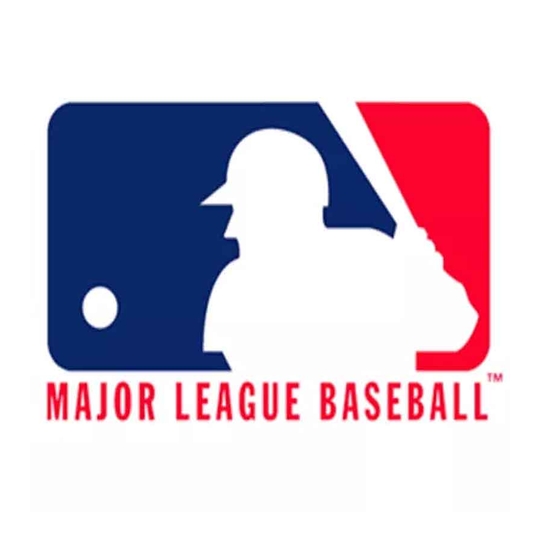Baseball players' racist, homophobic tweets not the whole story

Major League Baseball is white rural America, only it doesn't want you to think so.
That's why, in the recent aftermath of three ballplayers having their past racist and homophobic tweets from 2011 and 2012 uncovered, Major League Baseball rushed in with sponges and Clorox bleach -- anxious (desperate, really) to show the world that the thoughts of Atlanta Braves pitcher Sean Newcomb, Washington Nationals shortstop Trea Turner and Milwaukee Brewers pitcher Josh Hader do not represent the so-called national pastime.
It's actually a pretty well-worn game plan:
First, immediately denounce the sentiments.
Second, have the players issue an apology (tears always preferable) -- always with the highlighted-in-neon line, "Those words don't represent how I truly feel."
Third, send in some sort of sensitivity trainer to sit down with said offenders in a behind-the-scenes, heart-to-heart talk.
Fourth, set up a press session where the sensitivity trainer speaks of the player's big heart and open mind, and insists he learned from his mistakes.
Fifth -- forget it all happened.
That's what we're witnessing now; what we've witnessed time and time again.
Back in 1999 I was the author of "At Full Blast," the Sports Illustrated profile of then-Atlanta Braves pitcher John Rocker, whose lovely thoughts (into my tape recorder) included referring to a black teammate as a "fat monkey" and bemoaning having to sit on a New York subway next to some "queer with AIDS" or "some 20-year-old mom with four kids."
The aftermath of that piece was intense -- Rocker was slammed in the media, mocked by Saturday Night Live, all but banned from the Big Apple by then-Mayor Rudy Giuliani. The Majors suspended and fined him; the Braves demoted him.
Then, of course, Rocker was ...
• Ordered to have a mental evaluation and attend sensitivity training.
• Directed to meet with the three most prominent available African-Americans -- Hank Aaron, former Atlanta Mayor Andrew Young and then-Macon, Georgia, Mayor Jack Ellis.
• Told to issue a statement of apology and regret.
He ultimately returned, a new and changed man who, until recently, was, um, peddling "Speak English" T-shirts on his website. You read that correctly.)
I have covered baseball for a long time. To be blunt, Major League Baseball doesn't want you to know it has a problem that extends throughout its predominantly white culture.
It doesn't want you to know that, though it brags it draws players from across the globe (nearly a third are Latino), its clubhouses are no havens of racial neutrality; they are almost without fail lands of division, where whites hang with whites, Latinos hang with Latinos, Asians hang with Asians. More than 80 percent of the people who watch MLB on TV are white, according to a 2013 Nielsen report.
It doesn't want you to know that only 8.4% of the league's players are African-American (down from 18.7% in 1981). That despite adding six African-American players this year -- boosting the numbers from last year when MLB had the lowest percentage of black players since 1958 -- "nearly one-third of all teams don't have more than one African-American on their 25-man roster or DL (disabled list)," according to an analysis by USA Today.
It doesn't want you to know that since Jackie Robinson blasted the Major Leagues for the lack of opportunities for African-American managers in 1972, only 16 black men have been hired for the positions.
It doesn't want you to know that one can comb 1,000 miles of city neighborhoods without finding a gaggle of kids with bats and gloves. It doesn't want you to know that a sport once accessible now exists on the terrain of $300 bats, $500-an-hour private youth pitching coaches and scant access to year-round programs.
Just for kicks and giggles, use an upcoming free evening to attend a Major League game. It can be in New York or Los Angeles; Chicago or Detroit; Denver or Kansas City, Missouri. Once there, take a moment and count the number of African-American faces walking the corridors or standing in line for a hot dog and beer.
Three days ago I dragged my son to Angel Stadium to see Mike Trout patrol centerfield for the Halos. What surrounded us was an ocean of uninterrupted whiteness.
That's what Major League Baseball has become over the years, and why it was no surprise when Hader -- who in 2011 brought the world such tweeted thoughts as "KKK" and also used the N-word and in 2012 continued, "I hate gay people," and "white power lol" -- was greeted with a prolonged standing ovation in his first home start since the controversy erupted. The weak explanation was that fans were applauding his apology.
I don't think so. They were celebrating what Hader symbolized -- the white kid back on the hill. The white kid being done in by the "PC police."
Anyone who has spent time around Major League Baseball (and, in particular, inside its clubhouses) knows all too well that it is the most narrow-minded and sheltered of professional sports.
The words of Newcomb, Turner and Hader are, ultimately, just words. (And who knows? Maybe the three have evolved since they tweeted them.)
But don't be fooled.
Those words carry meaning.
Deep meaning.
By Jeff Pearlman. The-CNN-Wire™ & © 2018 Cable News Network, Inc., a Time Warner Company. All rights reserved.
The Gayly – August 1, 2018 @ 11:15 a.m. CDT.





